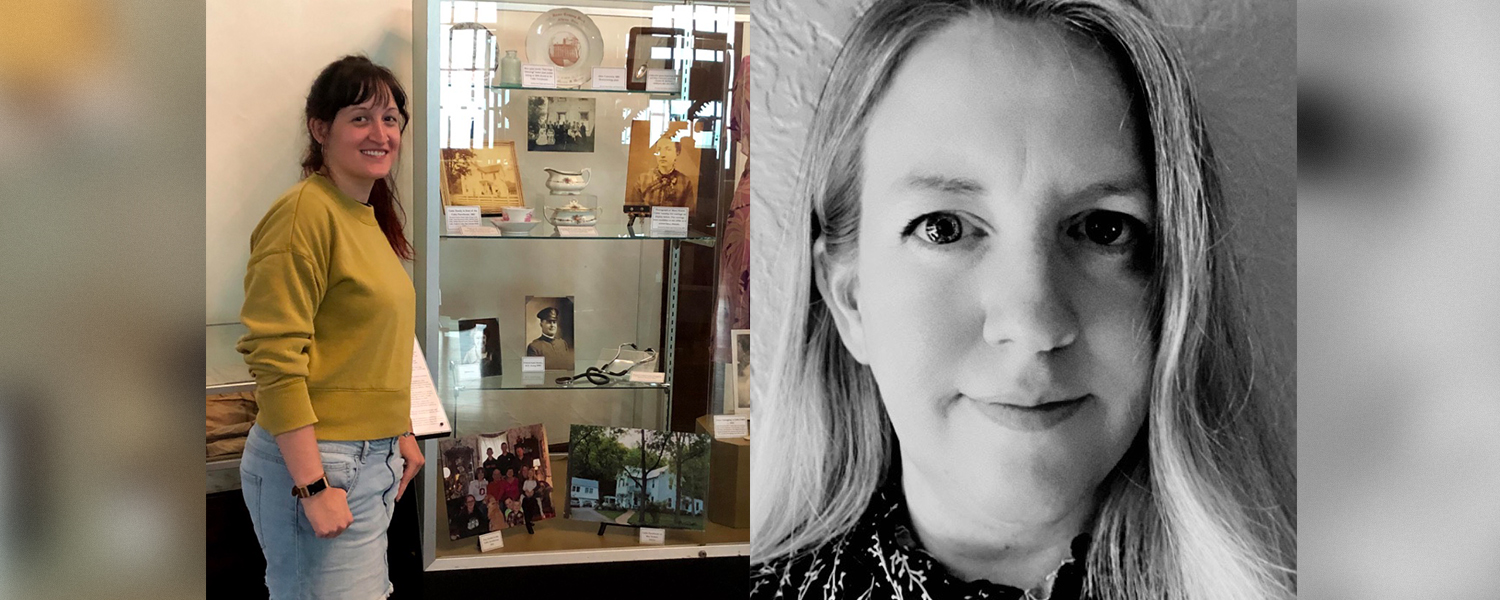For many people, when they hear someone has a master's of library and information science, their mind immediately conjures up a librarian stocking shelves. But an information science degree opens so many more doors. Here are two MLIS grads who pursued paths outside of the library's confines.
Sarah Grabner
Image


Living for the past ten years in southeastern Ohio, Sarah Grabner, MLIS '20 had a master's degree in art history, but employers at museums where she wanted to work were looking for an additional skill set. "A lot of collections departments want their staff to have a library science background," she says. Kent State's iSchool was the perfect opportunity for her. "I didn't have to move, I could stay where I was and do it online. It was really awesome and I'm excited to actually get to work in my dream profession and use my degrees."
Grabner pursued the cultural heritage informatics course of study through her library degree which includes pathways in archival studies, museum studies and special collections. "These classes were really useful in understanding metadata fields, taxonomies and databases. It makes the whole process in my new job that much more streamlined," Grabner says.
Shortly after graduation, she landed a job with the Arkansas Art Center. "They have a really large collection of contemporary craft and more traditional things like Renaissance paintings," Grabner says. While the Art Center works on construction of a whole new building, the collection is being housed in an off-site warehouse. "We're doing inventory to get ready for the new move, which means updating the information for the new database, conducting research on the pieces for a fuller history and even taking more and better photographs of what they have in the collection. A good bit of this is online for users to view virtually and documenting the rest of the collection is part of what I'll be doing over the next couple years."
Tammy Troup
Image


Similar in some ways to Sarah Grabner's work creating a resource rich database of a museum collection is the work that Tammy Troup, MLIS '12 does at the Iowa State University Library. While she may be housed in a library facility, the work Troup does might not be the first thing that comes to your mind when you think librarian.
"I am responsible for ensuring long-term access to digital objects collected by the library," Troup says. "I chose to study digital preservation because I held a certification in historic preservation and an MA in history. I recall being struck by how quickly a built environment could undergo destruction and be almost entirely forgotten in less than a lifetime and how much more quickly would society forget the digital or virtual environment."
Digital preservation is the accurate documentation and rendering of authenticated content over time. It could be the storage of digitally native files and data or it could be the digitization of already existing physical media and information.
The iSchool was a natural fit for Troup's interests, plus the program's flexibility was key. "As a working mother," Troup says, "I needed a program with asynchronous opportunities. I took courses in the evening and online. My degree helped me narrow my focus and accept the limits that accompany specialization -- and that's okay!"
While studying, Troup gained experience in collaborative work and writing mock policies and procedures, managing projects, building logical workflows and identifying knowledge gaps. This last is one thing she sees as key to her education and her ongoing self-directed learning.
"Someone somewhere is probably concerned about the same thing I am. It's my job to find these people and learn from them. If the knowledge doesn't exist yet," Troup says, "it's my job to work with those people to build new knowledge." With the abundance of new digital information and digital objects ever increasing, digital preservation is a field with growth as wide as the internet itself.
The School of Information at Kent State University has evolved over its 70+ year history to serve the ever-changing needs of information professionals and organizations that employ them. The largest graduate degree program at the University, the school boasts a faculty of world-renowned researchers and offers five different master’s degree programs entirely online.

